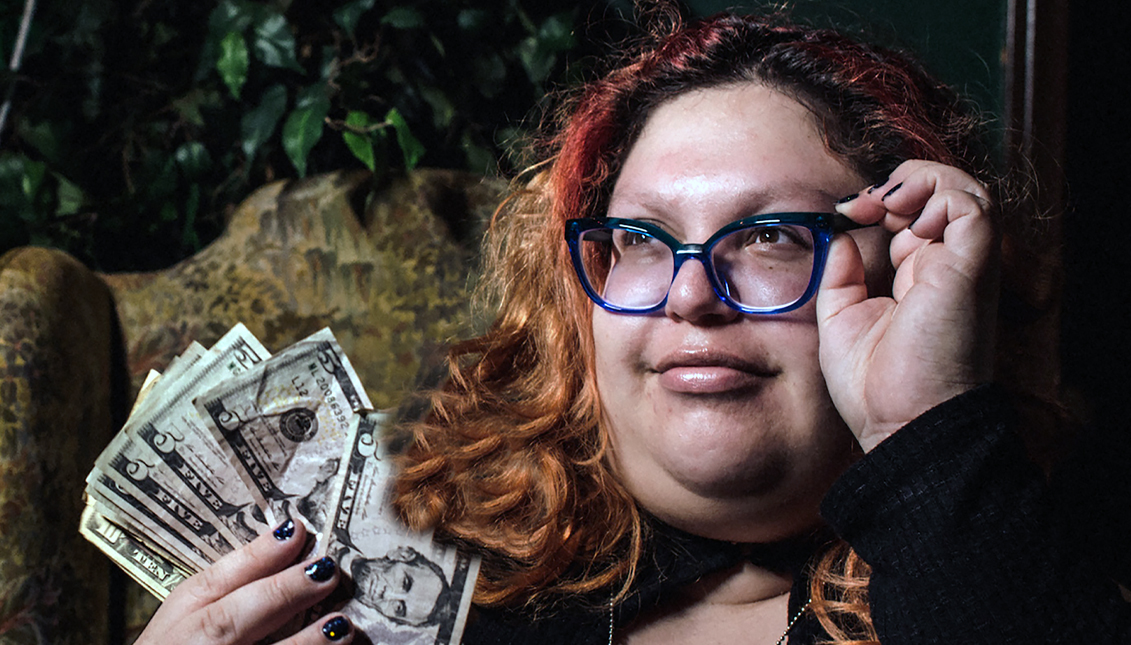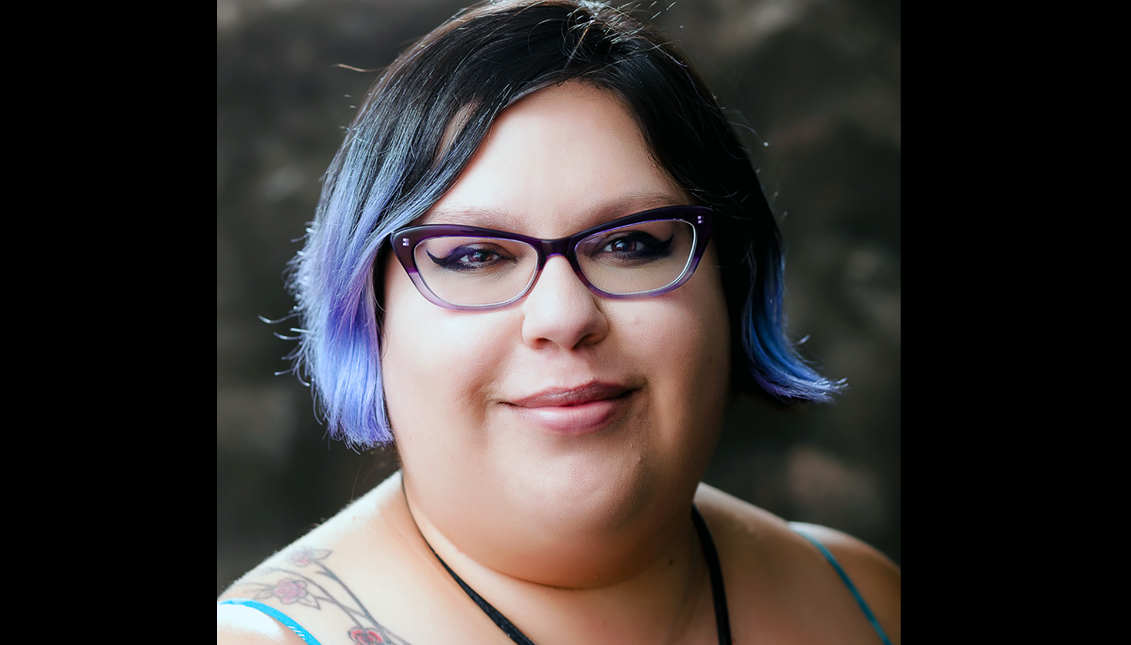
Dissecting Comedy
Sam Varela: “The art of comedy is about taking a thought that can be inflammatory or polarizing and finding a way to make it funny and relatable”.
Sam Varela is a Latina producer who chose not to chase after Hollywood’s traditional golden goose but instead channeled her passion and talent towards a newer frontier. She took her enthusiasm for interactive digital comedy and hopes to make it into a gathering place for a world still coping with the Covid-19 pandemic.
Varela’s approach to Latino identity, colorism, and race — for all to see in blog posts such as A Chicana’s Ongoing Journey To Leave White Supremacy Behind — focuses on her politics and her love of comedy.
Her initial foray into the world of comedy came in 2008 when she interviewed comedians for her college radio station at the University of California at Irvine. Now, after twelve years in the business, she is a seasoned producer who turns our interview into a stand-up comedy session.
You started interviewing comedians and now you’re being interviewed as one. I feel there is a punch line here.
I started interviewing comics back when it was easy. They were more accessible so I’m really grateful I got into comedy at that time because I was able to meet a lot of amazing comedians that became movie stars or bestselling authors. So I’m glad I got to meet those performers when they were still accessible.
Comedy has been saving in some ways. I was alone a lot of my life and comedy has been important to me in general establishing a sense of self. I specifically remember in high school discovering Mr. Show with Bob and David, an HBO show, and that really was one of the first things that solidified my comedy taste and made it look accessible.
There are many ways people can work and be involved in comedy nowadays. I think most of my journey has been dealing with the stuff I don’t want to do.

I like that I can enjoy many types of comedy. Really the only thing that would make me stop liking someone’s comedy would be bigotry or racial slurs. But other than that I always try to be very open. I like when comedians just talk about the things that are unbelievable in our society.
There are so many different ways of doing comedy that I would hate putting a limit whether that’s visual, very strong writing punchline after punch line, or a long story that at the very end ties everything.
My main sources are Twitter and podcasts, which usually treat the news from the host’s perspective. I do love political comedians but I prefer when people call out the absurdities that happen in our U.S. political system; whatever is going on and you’re not supposed to talk about.
My favorite example of Trump-based humor is Anthony Atamanuik who had an amazing TV show on Comedy Central called The President Show where the entire show was based on his impersonation of the President, which was both very accurate and very truthful.
When Bernie Sanders was running there was another comedian called James Adomian who did an amazing Bernie impression. Both performers did lots of shows together faking how a debate between them would be.

Comedy is actually still very segregated. There are of course people of all races in comedy but the way comedy has been presented traditionally in television or comedy clubs, with hierarchies, find that race has been segregated.
Shows that get a lot of people mixed together are actually produced independently. Institutional comedy is still very segregated with people still doing brown face. It’s common for major comedy clubs to have something called “Frijoles Friday.”
As a producer, I like having people from all possible cultural backgrounds all the time. Most comedy presented to us usually comes from white men.
RELATED CONTENT
Comedy is a good genre to introduce new ideas to people. Is less intimidating than reading someone’s book. Gabriel Iglesias is a good example of someone who is not less Latinx but still accepted by the mainstream. Latin History for Dummies is another great example. Simply gives you options to keep finding out. Both of them are good examples of why it is important to insist on mixing performers.
Sometimes they still look at diversity as a quota or something to appeal to people. I don’t think people at the top understand how having more voices could affect us as a nation. America in a way is still culturally segregated. We’re not open to new ideas: you’ll have more choices. I’ll do my best mixing voices. I hope we can make it to the top so there is somebody there who knows the importance of not just having another face on the show but having somebody with something important to say in a funny way.
The whole art of comedy is taking a thought that may be inflammatory or polarizing and finding a way to make it funny and enjoyable. As long as something is funny it might make them “crack” a little.
I want to get my message across, more diversity and equality, but I personally don’t think that fame is great. I don’t want an eye on my personal life. Fame is a very specific experience and I only hope people getting it are really aware, it can be deadly and a big responsibility.

It’s been very interesting. At the highest level is still controlled by men but on another level, there are lots of women who are becoming producers, agents, publicists...So it’s nice not to feel so alone.
It’s very common to see a person of color being an assistant but not the manager. You can also see lots of men getting jobs above women. That’s because the main spaces are still dominated by men with old-fashioned ways of doing business. I felt like I had to sacrifice some of my feminine qualities in order to be a “better worker” in the eyes of these people.
I’m very passionate about online comedy. It’s really sad to see illegal clubs opening all over the country where not everybody can participate. Lots of comedians don’t understand their privilege in being able to perform while others can’t. People who think that if they are out, they will be forgotten.
That’s why I like digital comedy so much because it allows comedians to be connected to audiences. When it’s done right it can be just as fun as a real-life comedy show and even better. You are able to reach people all over the world. It is less limited!
It’s a weekly show which was born last year in March in something called Quarantine Comedy. It was a fundraiser for mutual aid but it continued. We were doing comedy shows during Black Lives Matter, when Trump got COVID, and when he was impeached the first time. It ended being cathartic and helpful for the audience’s mental health, as well as for the host. Just to hear a comedian talking about absurdities was helpful.
In 2021 we came back with the mentality of not knowing how long this is going to be, focused on reaching a community and a platform to be funny. Also to have a daily one-hour separated from the world, separated from the stresses, a place to come and relax and chill out. Surprisingly nobody has used that name and that’s the essence of what the show is about: an hour of self-care.











LEAVE A COMMENT:
Join the discussion! Leave a comment.